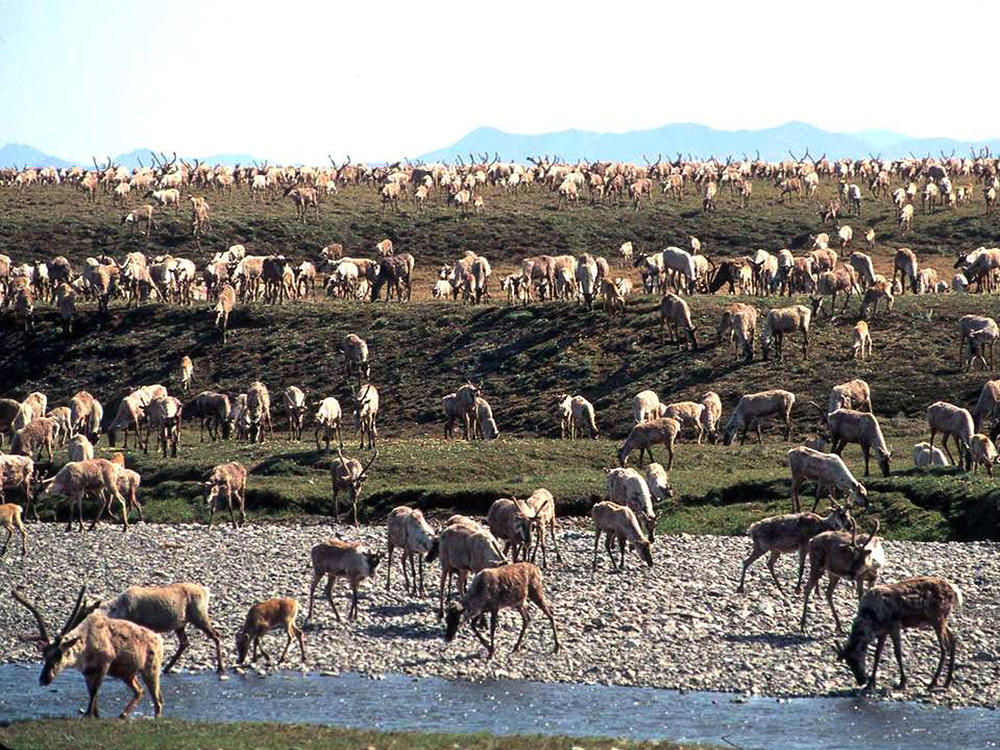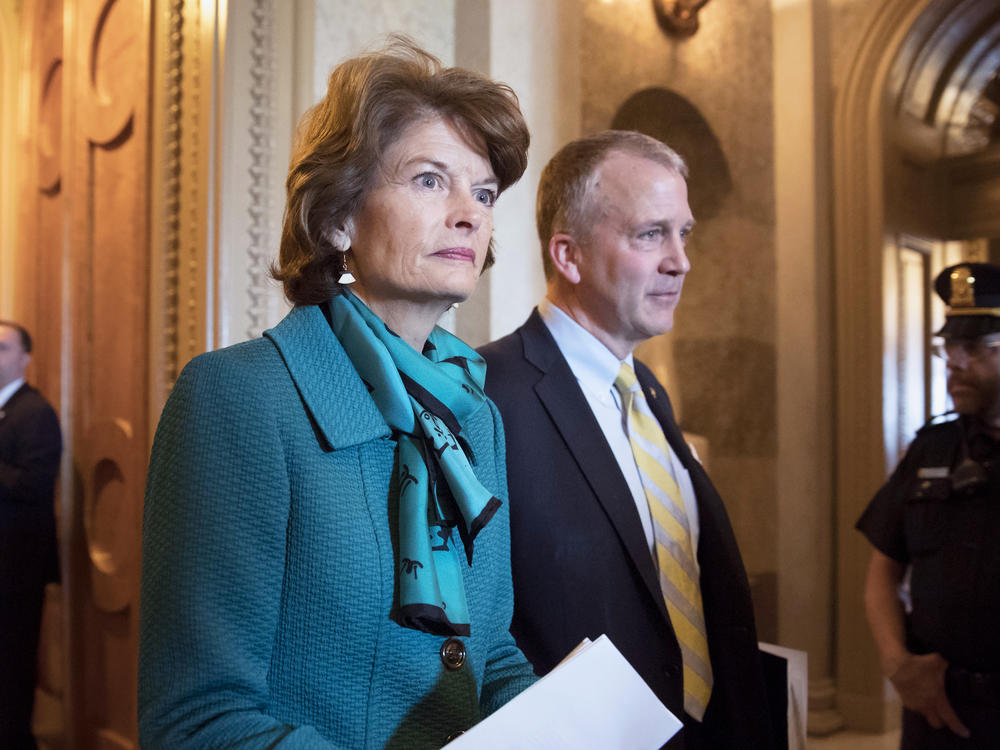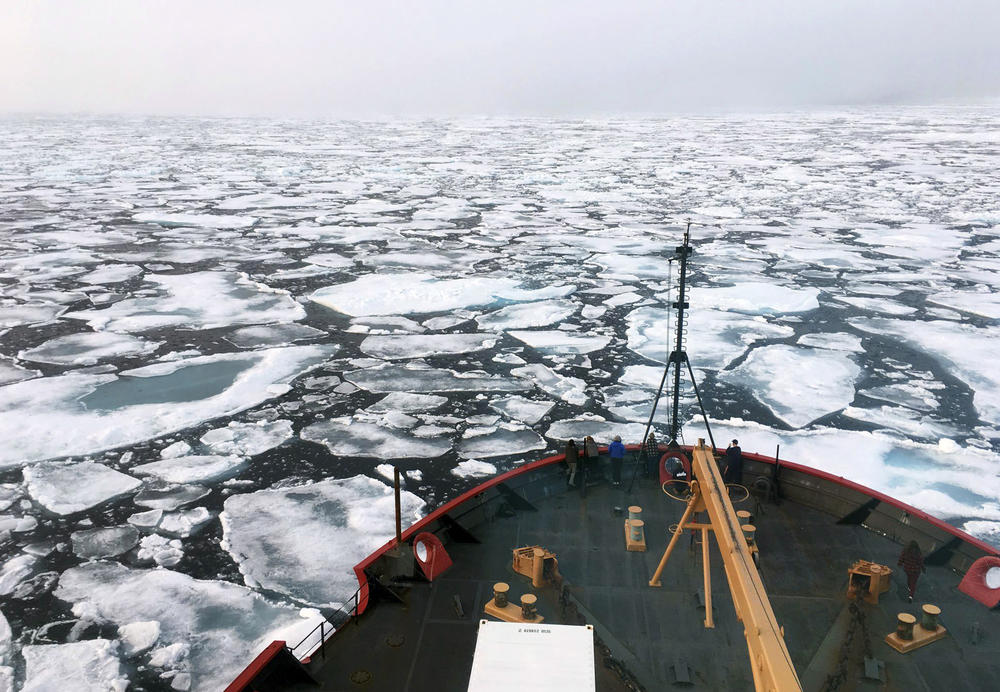Section Branding
Header Content
Biden ends drilling in ANWR, sparking criticism, as Willow Project moves forward
Primary Content
Updated September 7, 2023 at 5:45 AM ET
The Biden administration is canceling the only seven oil and gas leases in the Arctic National Wildlife Refuge in Alaska. The leases were originally issued by the Trump administration over the protests of environmentalists and some Alaska Native groups who argue the region should be protected as a critical wildlife habitat.
In January 2021, nine leases covering more than 430,000 acres were issued by the Trump administration; the Biden administration has already canceled and refunded two of the leases at the request of the leaseholders. The Alaska Industrial Development and Export Authority, a state-owned economic development corporation, owned the remaining seven leases — this action applies to those tracts.
"With today's action no one will have rights to drill oil in one of the most sensitive landscapes on Earth," said Interior Secretary Deb Haaland during a call with reporters announcing the move.
Responses from Capitol Hill have been critical
The move drew quick pushback from Alaska's two Republican senators, who originally voted for the 2017 Tax Cut and Jobs Act, the law that required Trump to hold the oil and gas lease sale.
Speaking to reporters in the Capitol, Sen. Dan Sullivan accused Biden of not following the law.
"They just yanked those leases," Sullivan said. "But now we're going to get ready for the next lease sale. Give me a break. Who the hell in their right mind would invest money in a lease sale when they just watched the first lease sale get yanked?"
The administration is required to hold at least one more lease sale in ANWR. Senior administration officials said they "intend to comply with the law" in regards to that mandate which requires another lease sale by December 2024.
The original sale, held during the last weeks of the Trump Administration, drew unexpectedly little industry interest. Major oil companies did not participate, and the state of Alaska was the largest bidder.
Sen. Lisa Murkowski told reporters on the Hill she wants to put pressure on Biden to reverse his decision but cautioned that it's "incredible to think that people are going to trust this administration on anything related to oil in Alaska."
Haaland said the environmental reviews done under the Trump administration to allow the lease sales were "fundamentally flawed and based on a number of fundamental legal deficiencies."
According to a Biden White House release, this includes failure to adequately analyze a reasonable range of alternatives and properly quantify downstream greenhouse gas emissions, as well as failure to properly interpret the 2017 tax law.
The administration said Wednesday's announcement "does not impact valid existing rights" from developing leases.
Environmental groups cheer, with caution
The refuge, commonly referred to as ANWR, is a habitat for wildlife, including grizzly and polar bears, caribou and hundreds of thousands of migratory birds. It has been the center of an ongoing political and legal battle related to drilling for decades. Wednesday's announcement was largely applauded by environmental protection groups.
The White House also announced new protections for millions of acres across Alaska's North Slope and in the Arctic Ocean. Over 13 million acres in the National Petroleum Reserve-Alaska (NPR-A), a vast swath of land on Alaska's North Slope, will be off limits to oil and gas drilling, following up on a proposal earlier this year.
While the new regulations will block new oil and gas leases in the protected areas, they will not block the development of existing leases in the NPR-A, including ConocoPhillips' controversial Willow Project.
Alaska oil drilling projects have been top of mind for both the administration and voters this year. The latest announcement comes several months after Biden approved the Willow project, the biggest new oil development in Alaska in decades, resulting in blowback to the administration.
While climate and environmental advocacy organizations largely praised the recent changes, some also called for additional action from the administration — particularly to block future projects.
"We can't stop here if we are going to address the climate crisis in the Arctic," said Mike Scott, Sierra Club's National Oil and Gas Campaign Manager in a statement. "The climate goals President Biden has set are necessary and ambitious, and massive oil and gas projects like Willow only put us further from achieving them."
Oceana's Acting Campaign Director Michael Messmer in a statement he wants Biden to halt offshore drilling "by issuing a Five-Year Plan with no new leases."
Others, like Earthjustice Alaska Attorney Jeremy Lieb, called on the Interior Department to conduct a full review of the climate impacts of potential fossil-fuel development in the Western Arctic.
Senior administration officials said they have no updated timeline on the other lease sale required by the 2017 law in 2024.
Most recently, Elise Joshi, a climate activist with the group Gen Z for Change, interrupted White House Press Secretary Karine Jean Pierre to confront the administration specifically with concerns about the Willow project.
But the administration insisted the new protections are separate from decisions about the Willow project.
"These are two entirely different processes," a senior administration official said on Wednesday.
Its approval has raised concerns from other young voters, who see climate as a more important electoral issue than their older counterparts.
Lexie Schapitl contributed to this report.
Copyright 2023 NPR. To see more, visit https://www.npr.org.



